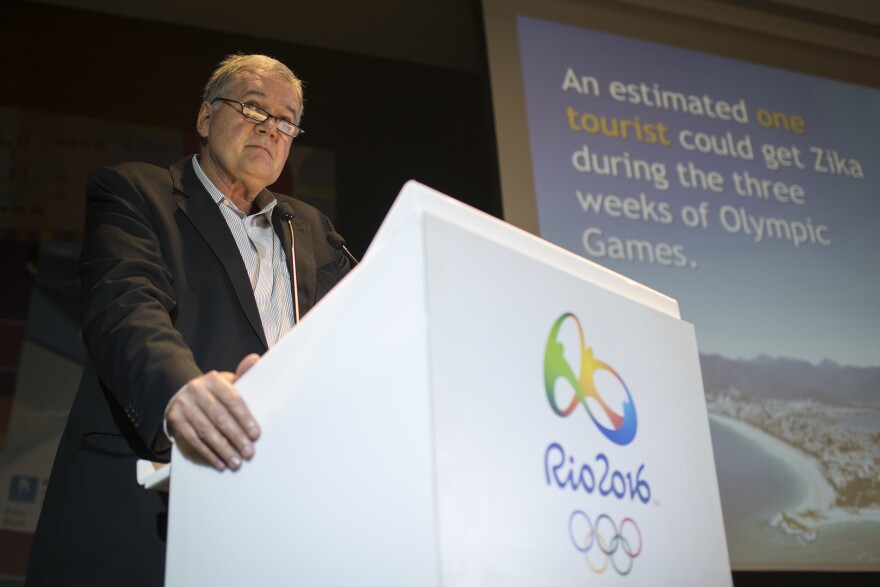With concerns over the Zika epidemic in Brazil, 150 health experts have signed on to an open letter urging the World Health Organization to pressure Olympic officials to move or postpone the summer games in Rio de Janeiro.
Ronald Krall from the Center for Bioethics and Health Law at the University of Pittsburgh signed the open letter. He wants to see the WHO conduct a thorough analysis of the potential risks associated with holding the games in Rio.
“So the world, the public, the scientific community, the people who would compete, the people who would go as spectators would understand the reasoning for deciding to hold the games in Brazil during this pandemic,” Krall said.
The letter voices concern about foreign tourists taking the virus back to areas like Africa and South Asia that have avoided Zika, which Krall said is the greater worry.
“The athletes are being given every opportunity to try to prevent getting bitten and infected,” Krall said. “But 500,000 people is a lot of people … It’s impossible to prevent some of them from being infected.”
U.S. health officials have dismissed the concerns including Tom Frieden, director of the Centers for Disease Control and Prevention. Frieden said they don’t see any reason to cancel the Olympics.
“The Olympics account for less than one quarter of one percent of all travel to Zika-affected areas,” Frieden said in an interview last week.
Krall said he understands and respects Frieden’s opinion, but he said the question is not how significant the increase is, but whether it’s an essential increase.
“Even if the additional risk is very small, is it a risk that we should be taking?” Krall said.
This is why he would like to see a group of experts convene and objectively assess the situation. He said there are some situations, like providing relief following a natural disaster, that would require travel to Zika-affected countries. The question is whether the Olympics justify the risk.
Despite his concern, Krall said he feels sympathy towards the athletes who have to decide whether to compete.
“To think about it either being moved or delayed or postponed for an athlete,” Krall said. “It’s a very difficult decision.”
More Essential Pittsburgh segments can be heard here.





